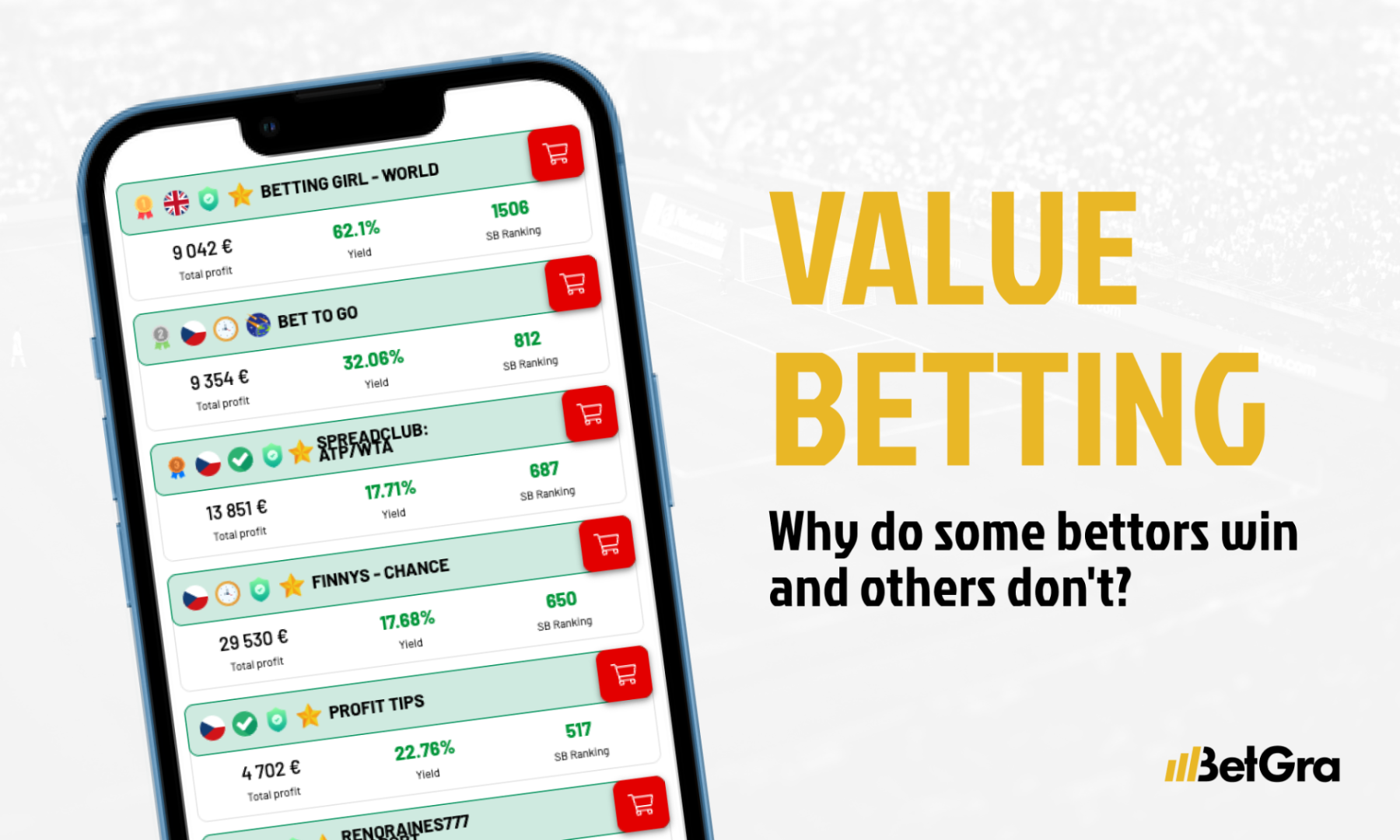Why do some bettors win and others don't? The concept of value betting
11.08.2023 11:00
Every day, hundreds of thousands of people struggle to find the right tips to finally start earning from sports betting. They don’t succeed, even when they start subscribing to tips from profitable bettors. The answer is simple.
These people are trapped in their ignorance and either can't or won't understand that betting is not about picking the winner, but about the value of the odds. Therefore, they blindly bet on teams like Arsenal winning because Arsenal is much better, while profitable bettors might calmly bet against it in the right situation because no team is invincible and the odds can be favorable. This principle is generally referred to as value betting, and even though it may not be the most exhilarating topic, it's essential to understand it. After all, you don’t want to keep feeding the bookmakers forever, right?
What is value betting?
Value betting is a betting strategy based on the probability of certain sports events and the value of the odds. Essentially, every odd given by a bookmaker reflects a certain probability.
For instance, odds of 2.00, in an ideal world, would mean a 50% probability because such an outcome would occur once in every two instances, and in case of a win, you'd earn double your stake.
The coin toss example
An odds of 2.00 reflects the probability of getting a Head or Tail in a coin toss. If you bet with a friend and they give you $100 every time you get a Head, while you give them $100 for every Tail, in the long run, neither of you would have an advantage.
However, imagine a situation where, in a coin toss bet, every time a Head comes up, your friend gives you $200, but for every Tail, you give him $100. In this case, you'd have an advantage over your friend, and if you continued long enough (made enough tosses, say 500), you'd end up in profit and they in loss.
Translate this to betting odds: imagine being able to bet on a coin toss with a 50/50 chance, but the odds for a Head are 2.50 while for a Tail it's 1.50. Which would you choose?
In this situation, you'd definitely go for the Head, and you would certainly be in profit because the Head has a 50% chance of coming up, but an odd of 2.50 pays out as if it had around a 30% probability. Here, your edge would be over 20%, meaning in the long run, you'd earn on average 20% of all the money you bet.
Everyone has a chance to win
Returning to the initial statement, everyone has a chance to win. Even a lower-tier team playing against a giant like Arsenal has some chance. After all, if not, the players wouldn't even compete, right? Hence, we need to move away from focusing on winners.
No one can consistently predict winners, especially when the odds for such winners are extremely low, like 1.30 or less (unless games are fixed).
Always remember the coin toss – if the probability is 50 to 50 and you get more than double on a win, in the long run, you are guaranteed a profit. Even if you lose sometimes.
Stock market trading
The concept of value betting might seem challenging, but it’s simple. With odds, it’s like shopping. To be profitable in the long run, there's a fundamental rule – buy low, sell high. This is the essence of value betting.
Value betting is similar to stock market trading. You pick trading opportunities that, over time, will prove their value by increasing in price. With value betting, you look for opportunities where you believe the odds will go down. When the odds decrease, it confirms the value of your bet – the bookmaker offers you more for cashing out your bet than they should.
Value betting - conclusion
In practice, value betting isn't as simple as described above, but that's not crucial. The aim of this article was to explain that in profitable betting, the goal isn't to find winners but valuable odds. If you don’t get valuable odds, it's better not to place a bet. Over time, such bets will result in a loss, which isn't in any bettor's interest.
If you’re purchasing tips on websites like BetGra, the most valuable takeaway from this article is that to achieve the profits that tracked bettors get, you must bet at the same odds as them. If the odds decrease too much and you place bets at these lowered odds, in the long run, you might end up in loss, or at best, earn significantly less than the monitored tipsters.


